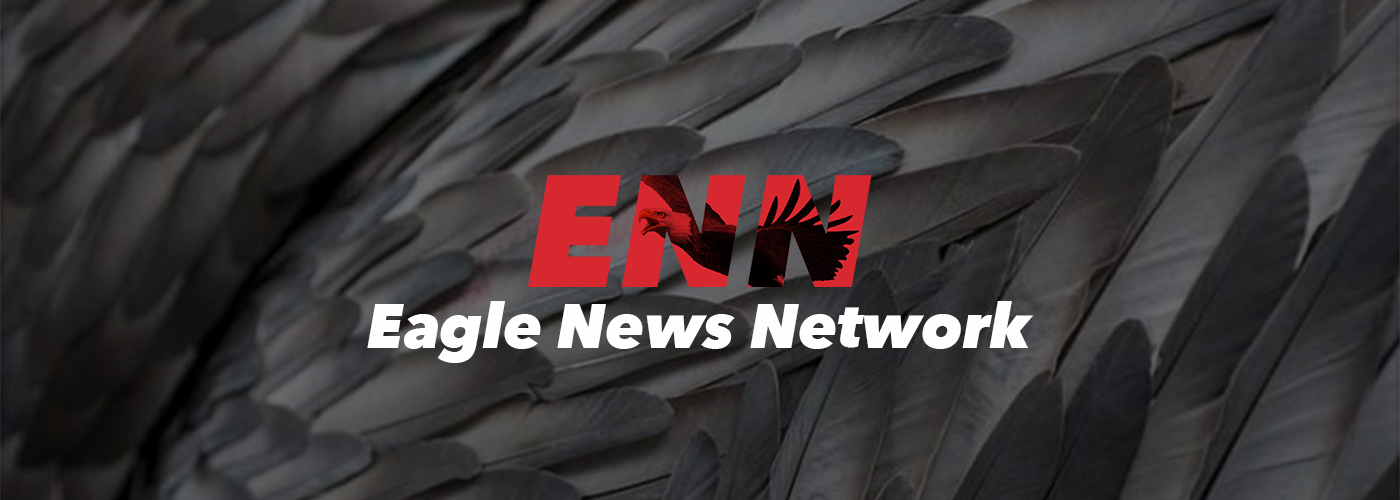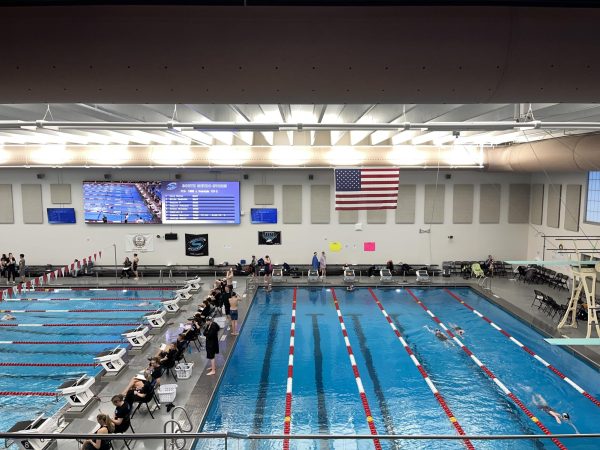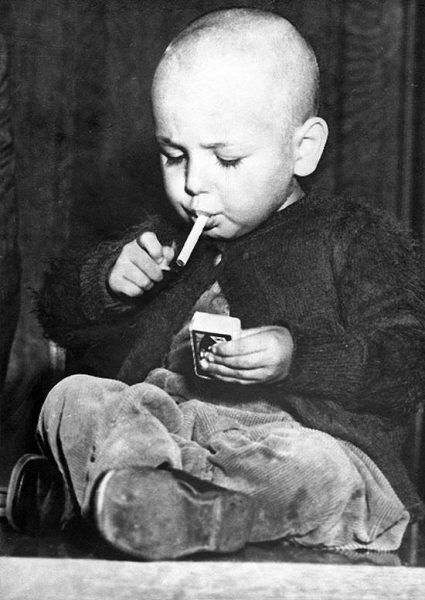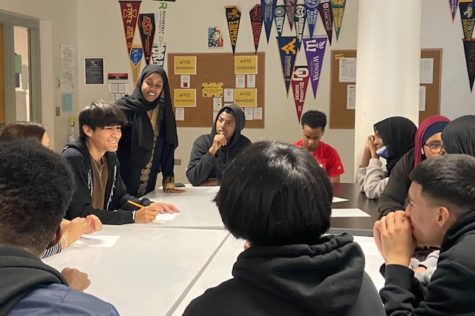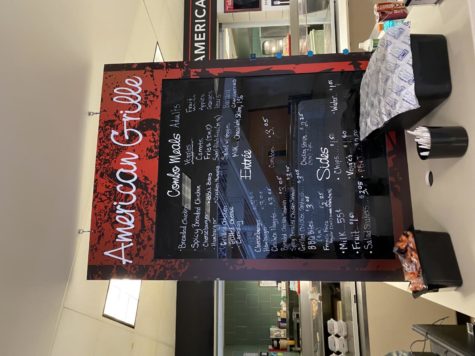College Apps: a Student and Counselor Perspective
November 29, 2020
As the fall college application season rounds to a close, college apps are still on the minds of junior Stephanie Romo and Career and College Counselor Lizzie McNamara.
Romo explains the perspective of student struggles when it comes to applying, while McNamara gives advice for applicants and shares her insight on the changes made due to Covid-19.
The following is a transcript of Ivan Rahouski’s interview with junior Stephanie Romo. The transcript has been edited for clarity.
Rahouski: What challenges do you feel students have when applying to colleges?
Romo: One challenge I feel like students would have was kind of like their guidance through college applications because I feel like a lot of kids don’t know really when to apply to colleges or even how to do it. So I feel like that’s what–for me–is one really big challenge students have. Just really having someone be there for you and telling you when to do things, or how to do things would be, like, a big thing.
Yeah. And the second question is what are questions you think students have or are wondering when applying to colleges?
I feel like a lot of kids wonder [about] financial aid, like all those things, or your status. How it’s like and even just how to do it when applying to colleges are really big [questions] that students probably have. I feel like there’s really not that many resources at school to, like, let you know those things, so yeah.
And then how can teachers provide help to get through the college application process?
I feel like we should definitely have a week in our connections that could just be like–we could just go to your connections teacher and just ask them questions. Just have a whole week dedicated to applying to college and the college process. I feel like that would really, really help.
Yeah, this next one is not an added question but I’m just wondering. In your opinion, what things do you think teachers could be working on during that week? Like what they would be doing?
[…] I feel like any student who feels like they have a hard time, or doesn’t have or know what they want– just to be there for them and kind of hold their hand while they’re doing it. I feel like during that week teachers could be encouraging students [to] really know what colleges you want to go to, if you want to go in or out of state, and just be there for them mostly.
And then the final one, are there any comments on the college application process that you wanted to add?
A comment would be that I don’t feel like just doing college applications should be stressful or scary. Like, it should be an enjoyable thing to do because it’s like your next step after high school. So, definitely, I’d say like you wanna be happy while applying to colleges so you just make sure you don’t feel weird doing that.
The following is a transcript of Ivan Rahouski’s interview with Lizzie McNamara, the College and Career counselor at EPHS. The transcript has been edited for clarity.
Rahouski: How have college visits changed due to COVID-19?
McNamara: Starting to research colleges and choosing your college is gonna be more challenging once students can’t physically visit the campuses. But, good news is that colleges have responded really positively and pivoted to make their college visits more accessible virtually. That’s shown at Eden Prairie High School. We’re offering over 200 virtual college visits this year through Scoir, our new planning platform that replaced Naviance. Students can see what colleges are visiting, sign up, get the link, and visit with those reps wherever they are, and I think that that’s helped reps cast a wider net of the school they’re visiting because we’re seeing visits from colleges that haven’t come to Eden Prairie in the past.
That was a great answer. How has teacher involvement changed on college applications due to COVID-19, such as letters of recommendation?
The letter of recommendation process is gonna look a little bit different as well as carrying more weight than it used to. With a lot of colleges going test-optional, they’re gonna be looking at a student in a different light. You’re gonna be more than just your GPA and your test score. They’re gonna be looking to your letters of recommendation and your essays to tell more of a story of who you are as a student. With that being said, a letter of rec has always been a huge part of the college admission process, but even more so it’s important for students to be planning ahead when they’re requesting their letters of recommendation. Asking the teacher well ahead of time, preferably even in your 11th grade year, [and] starting to think of some teachers and asking teachers in advance.
What are your thoughts on the ACT/SAT being optional? Do you still encourage students to report their ACT/SAT scores to colleges?
In response to COVID-19, colleges have published that they’re going to be test-optional, or test blind. It’s important to recognize the difference between those. Test-optional is meaning if you’re submitting an ACT score, they will consider it in your application. On the other hand, test blind is meaning that even if you submit an ACT score, they won’t consider that as part of their application process. General rule of thumb is if you meet the published average ACT or SAT score that the school admits, then you can submit your ACT score. But I’ve been telling or advising students that if you fall below those general guidelines or their published averages in both ACT and GPA, that would be more of a “reach” school for you.
With the ACT and SAT being optional, what are colleges looking more into?
With choosing to be test-optional, colleges are kind of going to be forced to look at a student more holistically. This means that they are not looking at just their GPA and ACT anymore, but what kind of extracurriculars were they involved in? Do they have leadership? Those are the types of things that they’ll be looking at: the whole student, not just their scores, to get admitted.
What are some common misconceptions students consider when applying to college?
I think a lot of the misconceptions about applying to college comes from the anxiety or fear surrounding it or what you hear from other people. And so, just own this process, make it your own, and do what’s best for you. I think a lot of the misconceptions come from kind of the anxiety or fear of the unknown, but once you get started with the college search and college application process, you’re gonna realize that it’s really manageable and it’s actually fun. You’re going to learn a lot about yourself in the process and you’re going to be able to plan for your future in a really proactive way. I think what I just want students to know is that you have support here at the high school. You have the support around you to be successful and you’re going to end up where you’re supposed to end up. I know that sounds cliche, but that’s what it’s gonna be.
How has COVID-19 changed the process of college applications?
This college application cycle is like nothing we’ve seen before. It’s hard to predict what admissions is going to look like in a few months to next fall. But I think that what’s changed is making colleges more accessible, and that can be in the way of college visits being virtual. It’s more accessible to students who weren’t able to take the ACT, or maybe you don’t perform well in a standardized test, so students will be looked at more holistically in that aspect as well. I think that overall, colleges are responding positively, and so I don’t think that there’s gonna be any direct effects on incoming students in the next couple of years. It’ll all be positive changes.
What should students be focusing on when working on their college applications?
When working on college applications, students should be really focused on making themselves a really well-rounded candidate, and that can be academically well-rounded or in their activities. I think what’s really important to focus on in the college admission process is highlighting the unique aspects about you. That could be a hobby, a background of where you came from, or really focusing and honing in on one talent. Those are all things that you should not be afraid to let shine on a college application. I’ve had many conversations with students as they’re writing their essays saying, “Is that okay to write about?” I’m like, “If it’s important to you, that’s absolutely okay to write about,” and you should write about those things in your essays. So don’t be afraid to be unique and brag about yourself. I feel like sometimes when I’m working with students, I’m like, “Yes. You 100% should be writing about that.”
What tips do you have for students applying to college right now?
College-bound seniors have a lot to consider right now, whether it be should I submit a test score or not? Should I go out-of-state or not? What I would like students to know is that right now there’s so much in this world that’s out of your control. Something that you can focus on is your future. The full implications of COVID-19 and admissions is unknown and what I would just like students to focus on is what they can control. Continue to do well academically, continue to stay involved, and continue to proactively plan for your future and dive in the things you’re interested in, whether it be information sessions about a specific major at a college, [or] just anything that can keep you motivated to keep going. Because it seems like right now we might be in kind of the trenches of COVID-19, and there’s so many questions about the future. But if you have something to look forward to, and if college is a huge stepping stone to your future, continue to focus on that because that’s what’s in your control.

